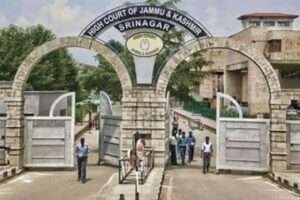Proving Case Beyond Reasonable Doubt Does Not Mean To Nitpick To Find Excuse To Obtain Acquittal
Case: Pappu Tiwary vs State of Jharkhand
Coram: Justices Sanjay Kishan Kaul and MM Sundresh
Case No.: CrA 1492 OF 2021
Court Observation: “The test which is applied of proving the case beyond reasonable doubt does not mean that the endeavour should be to nick pick and somehow find some excuse to obtain acquittal.”
“On the intimation of the incident, the fardbeyan was recorded expeditiously, inquest report prepared and the FIR was registered within 25 minutes of the same. The body was sent for post-mortem immediately and the FIR was sent to the court the next morning. We cannot say that there is any loophole which could have been utilised or that the FIR was ante timed and, thus, the objective of the requirement for sending the FIR to the Magistrate has been complied with. Thus, there is no merit in this plea”
“There is little doubt that there is not a minor but a major difference in recording the number of injuries suffered by the deceased in the inquest report and the post-mortem report. However, this will not be fatal in our view. We say so keeping in mind the purpose of an inquest report, which is not a substantive evidence. The objective is to find out whether a person who has died under suspicious circumstances, what may be the apparent cause of his death. In the present case the death was unnatural. There were wounds. There is no doubt that it is a homicide case. The expert is the doctor who carries out the post-mortem and has been medico legal expert. The two fire arm injuries have been clearly identified with the wounds at the entry and at the exit being identified. We have already discussed the proximity of the time period between the intimation and the police proceeding with it right up to the stage when the post-mortem commenced. We do not find any substance in this plea.”
“The remaining arguments of learned counsel for the appellant are based on plea of defective investigation, absence of independent witnesses but then there is no reason why the eye witnesses story, which is believable should not be given full credence. The test which is applied of proving the case beyond reasonable doubt does not mean that the endeavour should be to nick pick and somehow find some excuse to obtain acquittal.”
Previous Posts
Remand Power U/s 167 CrPC Can Also Be Exercised By Courts Superior To Magistrate: Supreme Court Download Judgement




